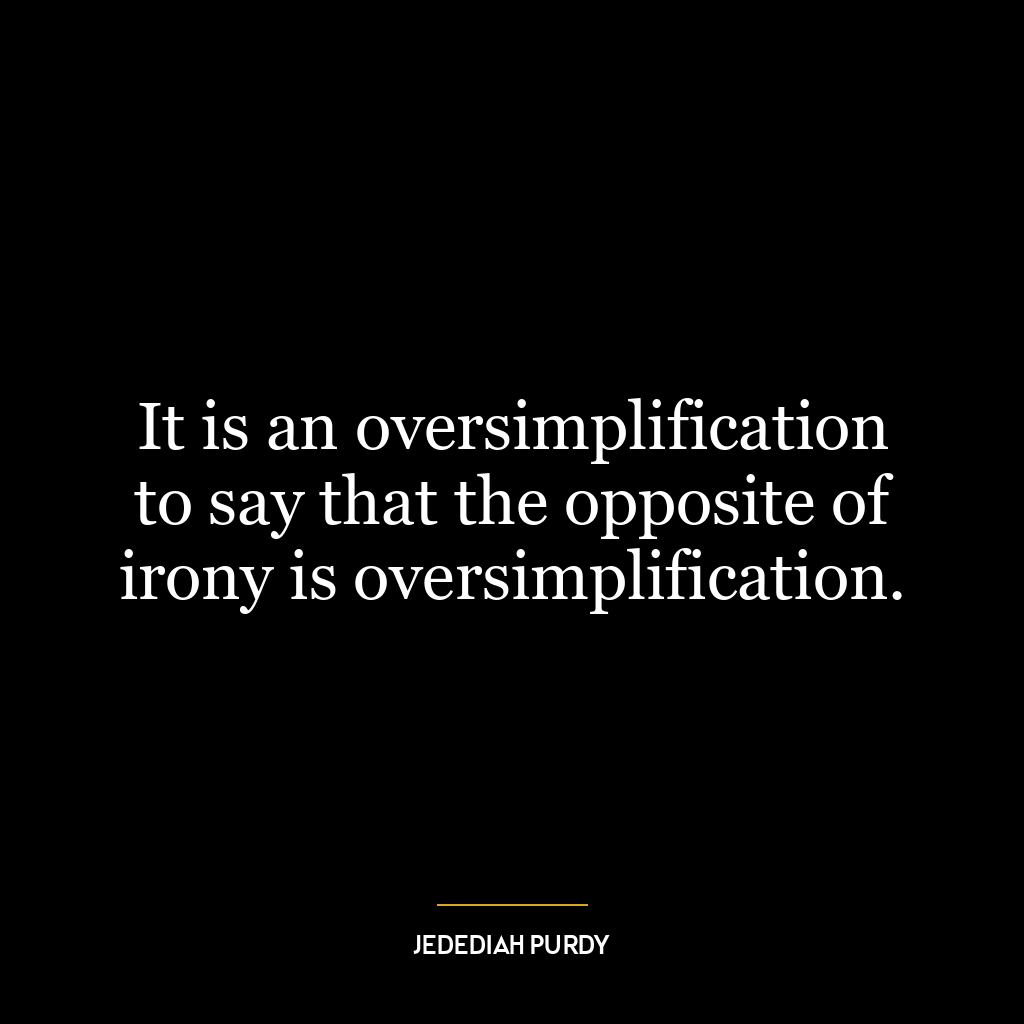This quote suggests that irony, which often serves as a defense mechanism or a veil of detachment, has the power to break down sentiment. Sentiment here signifies deep feelings or emotions. Irony can make these sentiments seem trivial, absurd, or less significant by casting them in a light of mockery or cynicism.
However, the second part of the quote flips this dynamic on its head. It proposes that sometimes a sentiment – an emotion or conviction – can be so strong and profound that it breaks through this ironic shield. In other words, there are moments when our feelings are so powerful they cannot be diminished by irony.
Applying this idea to today’s world could involve considering how we often use irony in communication (especially online) to distance ourselves from genuine emotion for fear of appearing vulnerable or overly sincere. This is particularly prevalent on social media platforms where sarcasm and satire are common ways of expressing oneself.
In terms of personal development, this quote might encourage us to consider whether we’re using irony as a defense mechanism against showing our true feelings – and whether there might be more value in allowing those strong sentiments to shine through unironically at times.
In essence, while irony can protect us from exposing our vulnerabilities and being hurt, it may also prevent us from experiencing genuine connections with others based on shared emotions and beliefs. Recognizing when our sentiments are powerful enough to dissolve any ironic barriers could lead us towards more authentic interactions both online and offline.













